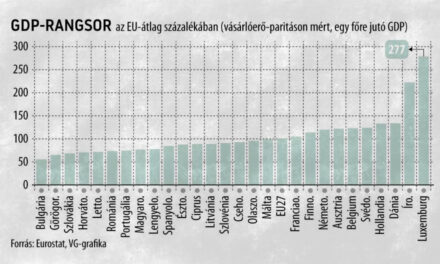It's not just the smiles that freeze on their faces: instead of 45, the price of electricity in Italy will increase by only 30 percent. If they can no longer reduce the price of energy, they will rather reduce growth in Italy.
Households and businesses in Italy will pay more for electricity and gas from October as another sharp rise in prices is expected at the start of the third quarter, despite government measures to limit growth.
So, despite the Italian government's belated and desperate struggle for overheads, the great European energy crisis hit the country.
The electricity bill of households will increase by 29.8 percent and the gas bill by 14.4 percent for an average family, the Italian energy regulatory authority, Arera, confirmed in its press release.
The new national tariffs will enter into force from the beginning of the fourth quarter of 2021 (October-December). The increase comes amid rising energy costs across Europe and beyond. According to Arera, the price increase passed on to Italian consumers could have reached 45 percent if the government had not intervened by setting the upper limit of the new tariff increase.
In Hungary, the left also raised utilities
The prime ministerial candidate of the Democratic Coalition, Klára Dobrev, would introduce a utility minimum and progressively rising energy prices linked to consumption among households, but this would negatively affect more than half of the households - Olivér Hortay, head of the energy business of Századvég Gazdasságkutátó, spoke about this earlier.
Kossuth Rádió Good morning, Hungary! in his program, he wondered why the Democratic Coalition is promoting such a program, when the president of the party,
During the administration of Ferenc Gyurcsány, the utilities rose continuously, the public utilities were sold, which were practically recovered by the Orbán government.
After 2010, the energy service finally came into national hands, which made it possible to reduce overheads, and we reached the point where electricity and gas are the cheapest in Europe in Hungary, the business manager thought.
"There won't be a gas increase": DK would create a resizikaos
Századvég's analysts studied how households would be affected by the DK's proposal. The proportion of Hungarian households falling under the lower category is less than five percent; those above the upper category, more than half of the households, would be negatively affected, moreover, the wrong professional concept is also well illustrated by the fact that the households that are most in need would not be included in the preferential category, because they typically do not use electricity or natural gas for heating , but solid fuels - emphasized Olivér Hortay.
And it would not make the situation of the wealthiest households more difficult, because they are typically equipped with energy-efficient infrastructure. However, those with large families would definitely be adversely affected because they have larger households and belong to the lower middle class. According to the expert, this would mean that the current utility program would be overturned and the utility bills of the majority of families would increase.
In the last eight years, the share of energy-poor households in the European Union has decreased the most in Hungary,
so those who, due to financial problems, have trouble paying the utilities or cannot heat their apartment, the proportion of these has decreased to the greatest extent in Hungary.
In Europe today, Hungary has the lowest utility costs, and this means help to every household and every person, the government's current utility program is one of the most successful programs.
With the Democratic Coalition classifying more than half of the households as rich and wanting to significantly increase energy prices, this result would disappear.
According to Századvég's analysis, it is clear that
the DK program would mostly affect those families where there are many children and the grandparents also live there.
This is an earlier program from 2018, which Klára Dobrev, candidate for Prime Minister of the Republic of Poland, has now reframed and is trying to sell as a green program, but it is not a green program. One of the positive effects of the utility reduction from an environmental point of view is that with the drastic reduction in gas prices, the proportion of households that switched from solid fuel to gas increased, and thanks to this, the concentration of particulate matter and the amount of air pollutants emitted decreased - stressed Olivér Hortay from hirado.hu based on his reporting.
Instead of being the most expensive, Hungarian electricity is among the cheapest in the EU
In terms of purchasing power parity, in 2010 utility costs in Hungary were among the highest in the EU. However, thanks to the Hungarian utility reduction policy, the situation has now reversed and this has caught the eye of many countries.
And here we are not only referring to Ukraine, which diplomatically attacked our country due to the very favorable Hungarian-Russian gas contract, but also to the fact that, according to the Frankfurter Allgemeine Zeitung, unlike other countries, the price in Hungary did not increase in a ten-year comparison, but decreased by a third.
In Hungary, one kilowatt-hour of electricity costs 10.31 euro cents, which is half of the European average and a third of the price in Germany, the Frankfurter Allgemeine Zeitung reports about the low prices in Hungary in connection with the increase in electricity prices. According to the German newspaper
unlike other countries, the price in Hungary did not increase in a ten-year comparison, but decreased by a third.
In our country, however, household prices are determined by law, so there has been no political intervention so far. In Hungary, in addition to nuclear energy, traditional fossil energy sources - natural gas, petroleum, coal - dominate - the newspaper reports, according to the Mandiner review.
It is no coincidence that more and more countries are planning utility reduction program similar to the Hungarian one, except that due to the energy crisis, many of them are already late.
it seems that Hungary can avoid the first wave of the great European energy crisis thanks to the forward-looking reserves, which some newspapers are now keeping silent about. They were the ones who previously explained that the filling of the gas reservoirs is completely incomprehensible and professionally unjustified, with the aim of the Orbáns being nothing more than draining the money of the Hungarians. According to 24.hu, the state is taking money out of people's pockets through the utility reduction to make extra profit. the reality is as far away from all of this as possible, Makronóm's analysis showed.
Source: mandiner.hu













